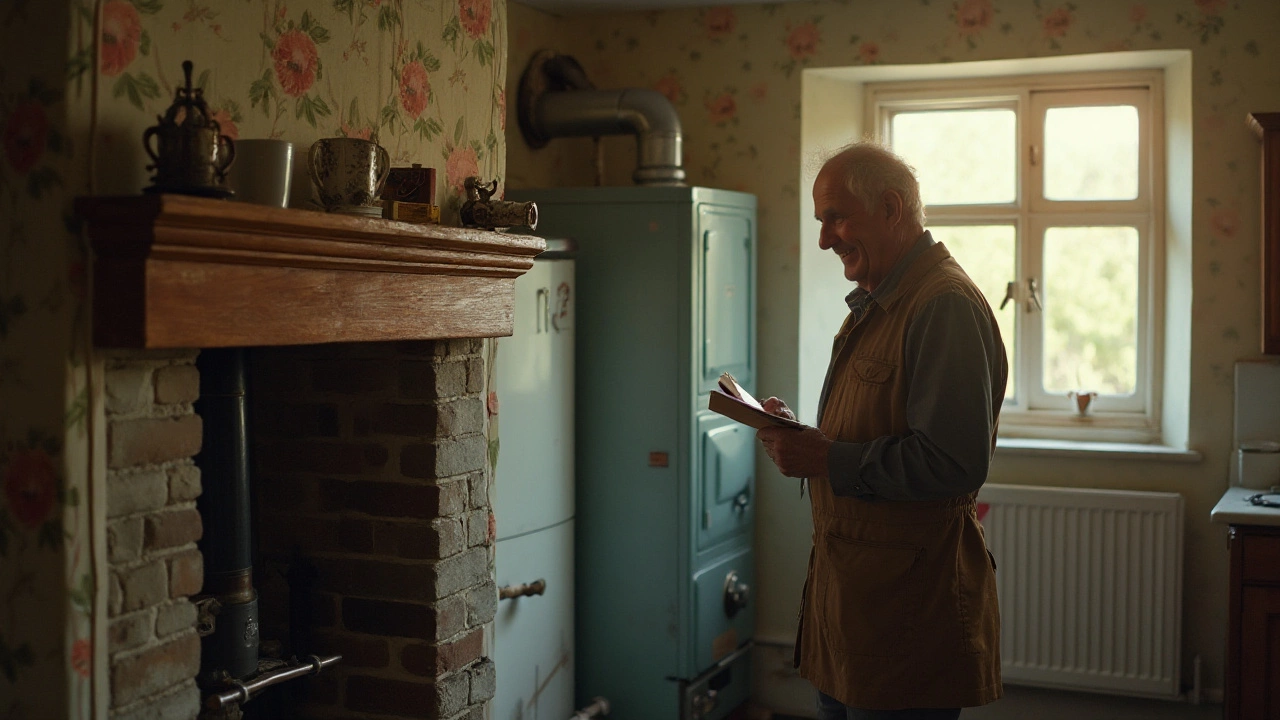Home Heating Made Simple: Smart Tips to Stay Warm and Save Money
When the chill sets in, you want your heating system to work without a fuss. Whether you rely on a boiler, a water heater, or a modern heat pump, a little know‑how can keep everything running smoothly and stop surprise breakdowns.
Know Your System and Schedule Regular Check‑ups
First thing’s first – understand what powers your home. A gas boiler heats water for radiators, while an electric water heater supplies hot taps. Heat pumps pull heat from the air or ground and deliver it inside. Each type has its own weak spots, so a yearly inspection from a qualified technician is worth the cost. A quick visual check each season helps you spot leaks, rust, or odd noises before they turn into big repairs.
For boilers, listen for ticking or gurgling sounds, and watch the pressure gauge. Low pressure often means a leak or a failing expansion vessel. With water heaters, look for sediment buildup at the bottom of the tank – that’s a prime cause of premature failure. Heat pumps benefit from clean filters and clear outdoor units; a blocked fan can make the whole system work harder, hiking up your energy bill.
Simple Maintenance Tasks You Can Do Yourself
Cleaning a heat‑pump filter takes just a few minutes. Turn off the power, remove the filter panel, and rinse with water. Let it dry before snapping it back in place. For a water heater, flush the tank once a year. Connect a garden hose to the drain valve, open the valve, and let the water run until it’s clear. This clears sediment that otherwise eats away at the heating element.
If you have a boiler, bleed the radiators once a season. Use a radiator key to open the bleed valve until water (not air) flows out, then close it snugly. This restores even heat distribution and reduces the boiler’s workload. Checking the thermostat settings is another quick win – set it a degree lower at night and use a programmable timer to avoid heating an empty house.
Don’t overlook the obvious: keep the area around outdoor units free of leaves and debris, and make sure vents inside aren’t blocked by furniture. A clear airflow path means the system runs efficiently and lasts longer.
When something does go wrong, don’t panic. A reset button on most boilers and water heaters can solve minor hiccups. If the heater keeps resetting, it’s often a sign of a failing thermostat or a trapped air pocket – both easy for a pro to fix.
Remember, trying to fix electrical components yourself can be dangerous. Stick to the simple tasks above, and call a certified Glastonbury appliance repair technician for anything involving gas, wiring, or major part replacements. Our team knows the local water quality, typical plumbing layouts, and the best spare parts to keep your heating humming.
Bottom line: regular checks, a few DIY clean‑ups, and timely professional help keep your home warm without blowing your budget. Stay ahead of the cold, and enjoy cozy evenings knowing your heating system is in good shape.

Can You Service a Boiler Yourself? Key Facts You Need to Know
Wondering if you can service a boiler yourself? This article breaks down what you can and can't do when it comes to maintaining your home boiler. Get the real facts about risks, laws, and the tools you actually need. Learn which simple checks are safe to handle on your own and when you should always call in a pro. It's all about keeping your heating running smoothly and safely.

Is Replacing a Boiler Messy?
When it comes to replacing a boiler, many people worry about the mess it might create. The process does include some disruption but with proper planning, it can be minimized. This article delves into what to expect during a boiler replacement, shares practical tips to manage the chaos, and highlights some interesting facts about modern boiler systems. By understanding the process, homeowners can better prepare for a smoother and less stressful experience.

Boiler Troubles? Here's Who to Call!
When your boiler decides to take a break, knowing who to call can save you a lot of trouble. This article breaks down how to choose the right professional, what to expect during repairs, and some helpful DIY tips for minor issues. You'll discover surprising facts about boiler efficiency and important questions to ask before letting anyone tinker with your heating system. Whether it's leaking, making strange noises, or plain refuses to start, learn the essential steps to getting it fixed.

Should You Repair or Replace Your Boiler? Tips and Insights
Deciding whether to repair or replace a boiler can be daunting. Factors such as age, efficiency, and the cost of current repairs need consideration. Regular maintenance can extend the life of your boiler, but there are times when replacement becomes the more economical and safer choice. This article will guide you through the critical aspects to consider, helping you make an informed decision.